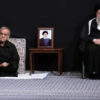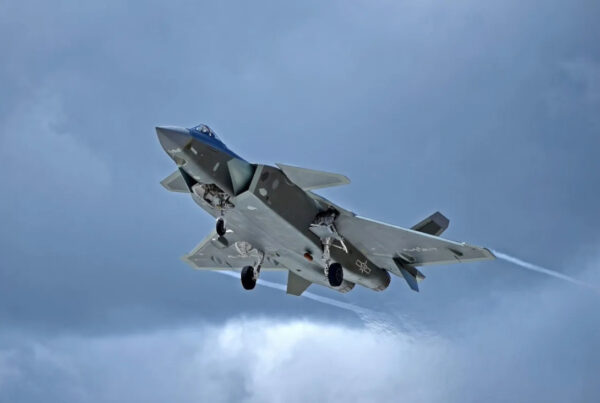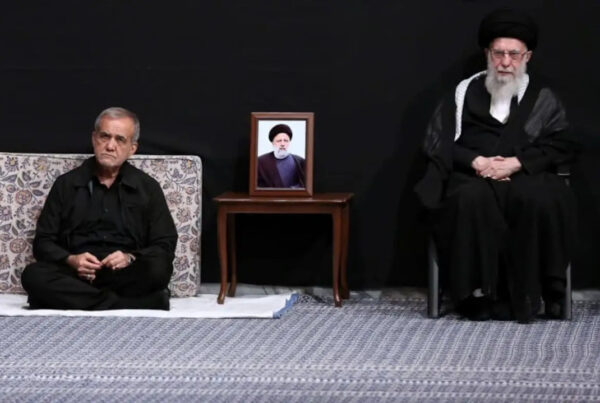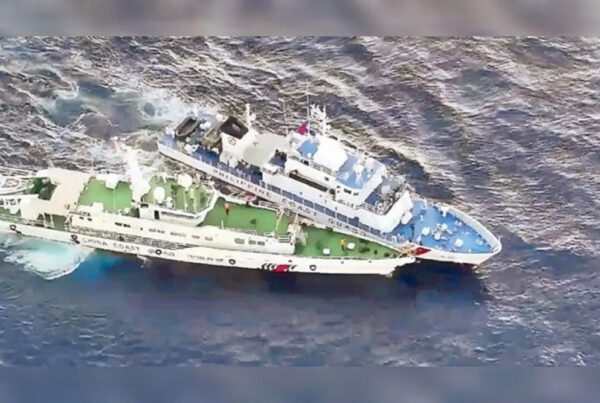Derek Nelson has outlined (probably most accurately) where Saudi Arabia will go in the current Jihadist War. It shall tighten up on Al Qaeda domestically and rein in – somewhat – the Wahhabi doctrines only so far as they threaten Saudi Arabia’s domestic tranquillity. However, they will still remain as a net supporter of the Jihadist cause when pursued outside of the Kingdom. In other words, they are going to remain more of a liability than an asset – if the Royal family has its usual way.
However, warfare is a dynamic process, and al Qaeda does have its own strategies and objectives. There is the ancient military axiom (whose accuracy has been proven time and time again), that no plan can survive contact with the enemy. Al Qaeda and the Jihadists have their own objectives and the revolutionary passions they have fanned can have a life of their own. It is often impossible to control a wildfire, and it is equally difficult to control an ideology once it is formulated and the legions of the angry and ambitious take it for themselves. Saudi money and backing set the Wahabbi’s loose in the world, and the Princes are deceiving themselves if they think they can control it now.
Al Qaeda and the Jihadists seek to weaken the Western World. They also want to expel all Westerners and non-Muslims from the Middle East, and to topple all Middle Eastern governments that are not Jihadist in orientation.
Instability in the Arab World generally, and in Saudi Arabia itself, is real and growing. For the Saudis, the annual share of oil wealth in proportion to the population is shrinking. The rapidly growing population yields more young men with no real prospects and a dislike for their national elites. Additionally, one should remember three aspects of any insurgent movement:
- Leaders and followers alike seek to accomplish great things, to storm the gates of heaven and pull down the high towers. Following a mild course of balanced political nuances is most unlikely.
- Insurgents invariably seek to polarize a targeted society (Arabs and Muslims in this case), and to give people no choice but to side with the heroic wonderful cause promised by the terrorists, or to band alongside the despised authorities.
- Modern terrorist groups (and this is especially true for al Qaeda) are deliberately organized into a broad network of quasi-autonomous components. Even if – and this is big ‘if’ – Al Qaeda would wish to preserve a status quo of sorts with the House of Saud, there is no guarantee that the whole network would follow.
Al Qaeda and the Jihadists will want to continue attacks on foreigners in Saudi Arabia and the Persian Gulf countries. These attacks, ghastly as they have been, are minor so far when considering the immense numbers of non-Arabs working in the region. But they could become much worse.
If attacks continue, they will place a strain on insurance premiums, salaries, and the willingness of countries and corporations to work there. Security costs will also increase. These will all have a pronounced effect on the price of oil and on the ability of the oil industry to work efficiently.
It has happened in the past that the atrocities of insurgents have forced an action-reaction cycle that can drive events toward a breaking point. Here, instability will cause more unrest, more attacks on foreigners, more security costs (with no guarantee of efficiency) and higher oil prices without an accompanying increase in the largess of Arab oil-rich governments to their citizens — which leads to more unrest. With a few really spectacular attacks, the whole action-reaction cycle could kick into overdrive and take on a life of its own.
Two other considerations: Saudi Arabia cannot really trust all of its security forces, and Al Qaeda has shown that they can imitate Saudi police and military to deliver attacks on foreigners. As ever, the terrorists’ aptitude to undermine popular confidence in the ability of the authorities to protect society will yield even more dividends. Secondly, Saudi Arabia cannot run itself without a large number of foreigners there. They constitute much of the labour force, and virtually all of the technical and middle management roles that keep the Kingdom running.
So what could happen? Hopefully, Saudi Arabia could turn out to be ruthless enough to quell Al Qaeda and its supporters within its territory (and we will end up turning even more of a blind eye to its human rights abuses than we have in the past). If not, then many truly bad outcomes may ensue.
Even if Saudi Arabia doesn’t destabilize, oil prices will continue to rise around the world, with predictable economic effects. Also, the attacks on foreigners need not be restricted to Saudi Arabia – as the petulant Bathists and infuriated Jihadists in Iraq have already amply proven. The tactic is a handy one and might soon be seen elsewhere in the smaller oil-producing states of the Persian Gulf. This will also have a powerful influence on global oil prices.
If Saudi Arabia does end up sliding over the edge into acute instability, the whole world will enter more dangerous territory. Because of the contemporary ’progressive’ contempt for economics and big business, we forget that commerce is the heartbeat of civilization itself. Oil, particularly inexpensive and reliable oil, is vital for the entire planet.
One important aspect of Gulf Arab oil rests with their subsidies to other Islamic or Arab nations. Syria and Egypt depend on these subsidies and a large reduction or loss in revenues would be catastrophic; substantially increasing their own vulnerability to instability.
If Saudi Arabia descends into anarchy or collapse, an intervention might not only be necessary, it may be unavoidable. Such an intervention would be the ultimate ‘outrage’ to Jihadists (as if we should be careful of injuring their feelings), but if Non-Muslims occupy the very heartland of Islam the effect would be incendiary. The polarization effect sought by the terrorists anyway might be rapidly achieved among the Saudi population and throughout the entire Islamic World – a world that now includes substantial communities of Muslims residing within the Western World.
Every non-Islamic government in the Muslim world will also be catapulted into an absolute battle for its own survival. These governments will perforce become our ‘Allies’, but will survive only through savage repression. We held our collective noses about some of our Allies in the Second World War and the Cold War, we can do it again if necessary but it would weaken our usual claim to be fighting for higher purposes. Moreover, we might be able to spare no resources to assist them, which means many such governments would topple and vast areas of the Islamic world would come under Fundamentalist control.
The conflict that would follow a Saudi collapse would be a much wider and bloodier conflagration than many of us dare contemplate now. The conflict would generate refugees far beyond the world’s capacity to absorb them (particularly as the Western world would be extremely reluctant to receive any). The risk of the flagrant and widespread use of weapons of mass destruction would be much higher too. Al Qaeda has made no secret of its intentions in this regard; Pakistan’s nuclear program is notoriously infested with fundamentalists and Iran’s nuclear debut is fast approaching.
Yet perhaps Al Qaeda’s capabilities and appeal have been over-estimated. Perhaps Saudi Arabia’s government and society might be more robust than many of us currently believe it is. All our fears could be for naught. This would be lovely, if true. However, prudence always dictates that one should plan for the worst even while hoping for the best; and the worst could be foul indeed.








